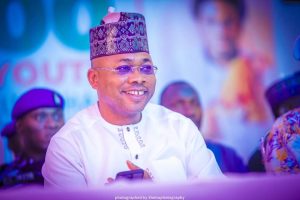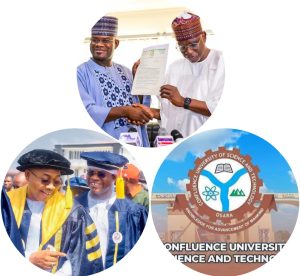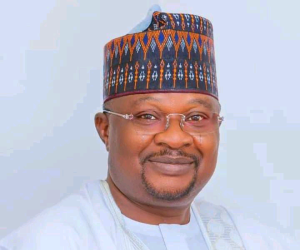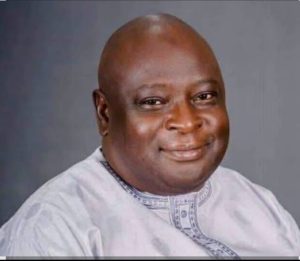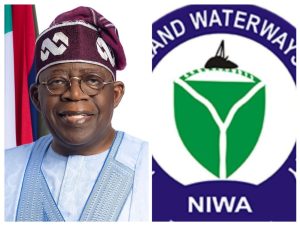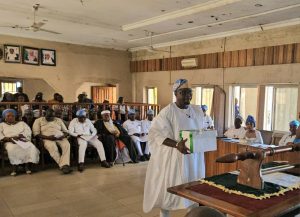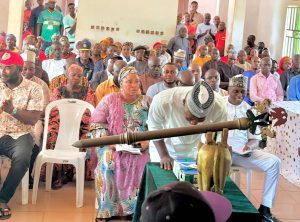Mugabe: Indoda Sabili at 87 By Adamu Adamu on February 24th 2012
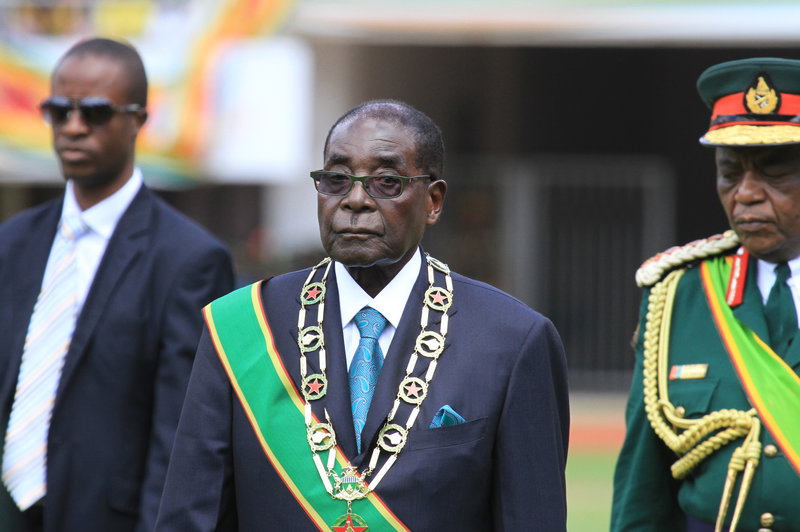
Robert Gabriel Mugabe was in prison when he was elected to head the Zimbabwe African National Union, ZANU; and when he came out, he was spitting fire. Asked by the BBC in 1976 whether Ian Smith would be among those whom he vowed to punish on coming to power, he answered: “He is at the head of this criminal gang, isn’t he?” And with these words, he won our hearts—us, the non-Frontline state citizenry for whom the war for the liberation of Southern African States had become almost a personal struggle. We were then spending the day with Angola’s MPLA, sleeping with Rhodesia’s ZANU-PF, dreaming with Namibia’s SWAPO, waking up with FRELIMO in Mozambique; loving Oliver Tambo’s Pan Africanist Congress, and having our nightmares about the fate of the ANC in apartheid South Africa.
His people were angry and at the very end of their patience with a leadership class ready to compromise and sell out—sell the struggle to any bidder and cut a deal. But with him free now, the war was prosecuted with renewed vigour and greater effectiveness; and its raison d’être came to be defended with greater eloquence. He went on to steer the independence negotiations with great skill and, with his great intellect, dominated the Lancaster House talks that saw Rhodesia turn into Zimbabwe; and the ghost of land-grabber Cecil Rhodes was forever laid to rest and the empire of ancestor-heroes was restored.
If hyper inflation is today ravaging Zimbabwe and it is finally economically prostrate, importing rather than exporting maize, this is no more indicative of Mugabe’s poor economic management than it is of the resolve of the international financial system to cut down an irritating, independent-minded non-conformist to size; and teach him and all potential imitators a painful lesson. Imperialism always deals creative challengers a crushing shut-out of its system with devastating effectiveness. And when, as in the case of Zimbabwe, this is compounded by a long and devastating drought and several years of unremitting Western sanctions, the world ought to know who to properly blame.
Of course, no one expected imperialism to approve of an opponent who had given it a series of black eyes—in the bushes of rural Rhodesia, at oak-panelled international conference halls, in the debates at Lancaster House and in Harare since 1980—and had refused, even at a personal level, to be intimidated by it.
At independence, white farmers totalling less than 1% of the population of Zimbabwe owned more than 70% of the best farmland. If this fact would not change after Lancaster House, there would have been no point to the whole liberation struggle, but now that the world had rallied to save the whites from imminent annihilation and a new nation had been born, the rules must change—and they did.
In an effort to reassure white Rhodesians and the world 20 parliamentary seats were reserved for whites and a ten-year moratorium on constitutional amendment and land redistribution was imposed. A fast track land reform, “willing buyers, willing sellers” programme intended to correct inequitable land distribution and which Britain agreed to fund, was put in place. And then Britain reneged.
It was only then that veterans of the independence war threatened to return to the bush to finish what Lancaster stopped; and for three long years, Mugabe frantically struggled to make Britain fulfil its obligation, but it adamantly refused. In February 2000 the government conducted a referendum which overwhelmingly authorized a constitutional amendment; and two months later the Parliament of Zimbabwe pushed through the amendment that allowed the seizure of white farms without compensation. And few days later and with this legal backing in place, independence war veterans, led the people in a symbolic invasion of white farms. But Britain wouldn’t budge.
Both the US and UK condemned what they called violent land seizure, missing the irony involved; but it was certainly indefensible, though it must be admitted that Mugabe had not been left with a viable alternative. Even though this excess could be legally justified, it could never be successfully morally defended. Though he had not been left with a viable alternative, it would have been better for a President Mugabe, no more guerrilla leader, to change the law than be seen to be opposed to its rule.
Mugabe has been in power for three decades and the effect of time and the stresses of leadership have begun to show on his face. But if he has aged, it is not on account of worry about the support of the Zimbabwean people which he still enjoys; nor on account of anxiety for failure to deliver on the promises of ZANU-PF, which he already has. Every single wrinkle on his face is a cambium-ring of imperialist-stress that has made Mugabe, despite his durable geriatric handsomeness, of jaw slightly gaunt, of limbs scrawny, but of gait and step ramrod and confident, and of mien un-browbeaten.
But those who accuse Mugabe of overstaying forget that the question of term limit has neither meaning nor application in parliamentary democracy. The first British prime minister, Sir Robert Walpole was on the seat for 21 years, and his successor, Lord North was there for 12 years, while his own successor, William Pitt, the Younger, was there for 19 years. Winston Churchill almost, Margaret Thatcher and Tony Blair were there for a decade or more each. Lee Kuan Yew, who is today being hailed by the West, perhaps deservedly, as one of the world’s greatest statesmen, ruled Singapore as prime minister consecutively for 31 years. So, why can’t Mugabe? That of course doesn’t mean Mugabe shouldn’t have groomed a successor, though.
His strategy rested on the trio of education, rural infrastructure and the economy. On coming to power, Mugabe wasted no time declaring Education for All by 2000, and going into a frenzy of building schools, universities and launching adult education schemes such that within less than a generation he had produced Africa’s most literate society. By the 1990’s, the literacy rate in Zimbabwe had shot up to 98 per cent. As a result, Mugabe received numerous honorary doctorate degrees which the awarding Western universities are now revoking because he would not bow before their governments. With their children in school and white farmers departing in fear, the local peasant farmers, now provided with infrastructure and incentives, were mobilized by Mugabe; and the result came eight years later, when Mugabe received the 1988 Africa Prize for Leadership for the Sustainable End of Hunger. He is a leader who has put knowledge to good use.
Trained by Jesuits, tutored by Marxists, moulded by the fire of liberation struggle and permanently defined by the tenor of Zimbabwe’s anti-settler-colonialist revolution, Mugabe is a man who is almost greater than his nation, with a stature more appropriate for the President of Africa than that of tiny Zimbabwe. There is no doubt that he is the most educated and one of the most quick-witted heads of state, not only in Africa but in the entire world; and it all shows with so much unintentional cockiness. He is always there before you arrive, and remains there long after you have departed—and what have you to say? Without doubt, this continent has not produced a leader of Mugabe’s intellectual stature—perhaps there isn’t another like him in the entire secular world—and there is no greater, non-demagogic patriot.
This African academic aristocrat—first among unequals—holds a staggering seven university degrees in different disciplines—English, history, science, education, law and economics—from different international institutions, with three of the degrees received while he was incarcerated in prison; and a masters degree by distance learning from the University of London received while he was prime minister.
Mugabe, who turned 87 on Tuesday, is sounder, more alert, more patriotic, more intelligent, more hard working and more accountable than all the leaders in Africa today. But certainly good governance is not all about university degrees, as Nigerians have painfully found out, nor even about patriotism or alertness; good leadership has more to do with vision. And in this Africa has not seen a greater visionary in office than this unassuming Shona tribesman.
And if they said it was because of tribalism that gave Mugabe landslides in the all the elections, that would make Zimbabwe the only country in the world where tribalism did the right thing by foisting the best man on the nation. The reality is that Mugabe is the forward looking visionary captain of a bullied and intimidated continent in retreat. This brave bush warrior epitomizes in every sense of the word, the full flowering of that authentic, unconquered and unconquerable spirit of African manliness, the archetypal continental indoda sabili, an icon who is, to imperial arrogance, utterly defiant, and with nothing for all its paternalism but lordly disdain. With head forever unbowed, and with heart and hat permanently in the ring of continuing neo-colonial combat, Mugabe today remains the only one on his feet—the solitary hero standing sentinel at the deserted frontier of patriotism for the African homeland. Happy birthday to you, Sir!”
Adieu, Pa Robert Mugabe.

